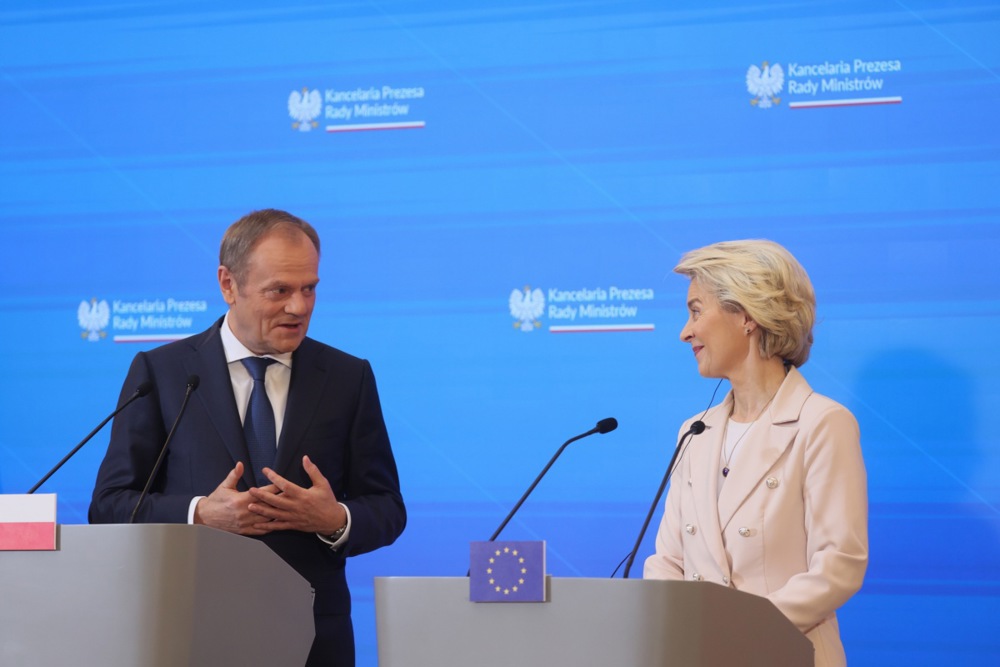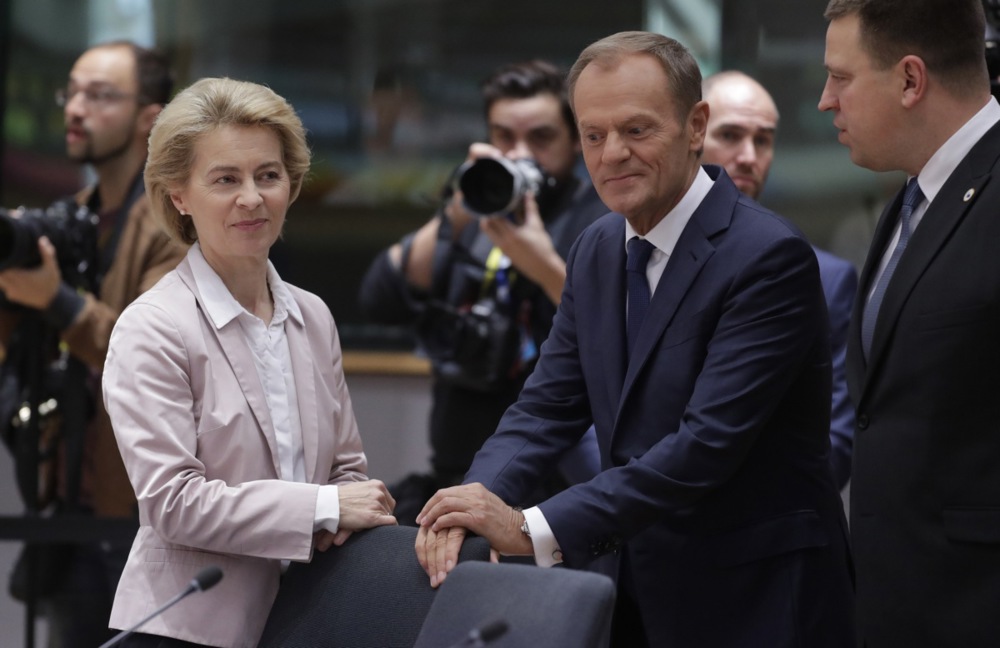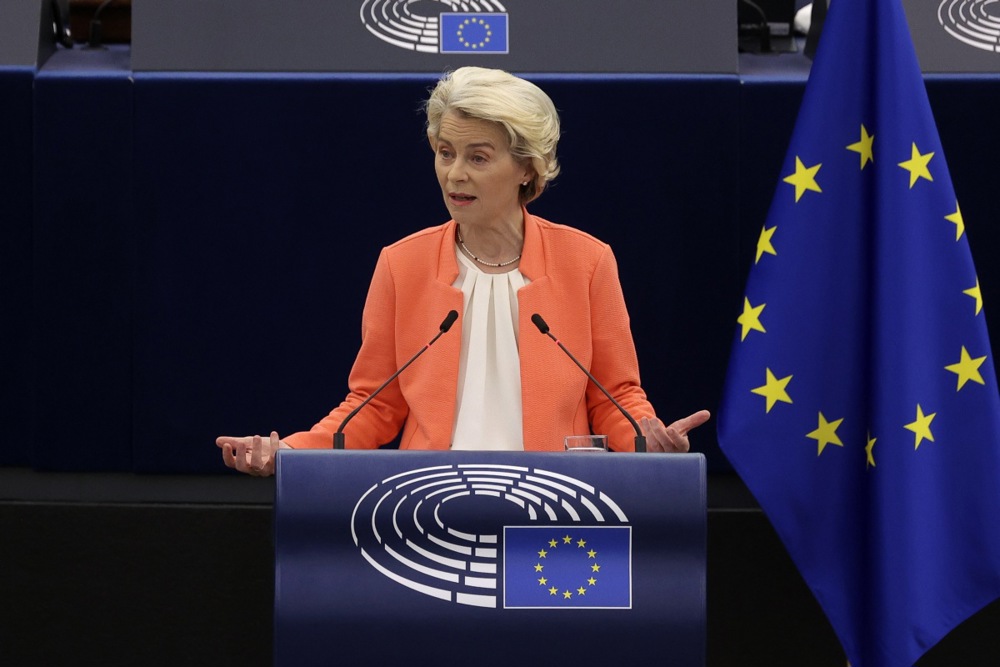President of the European Commission Ursula von der Leyen announced on social media on May 6 that the Commission is closing the Article 7 proceedings against Poland in reaction to the progress the country has made under the new government led by PM Donald Tusk.
“After more than six years, we believe that the Article 7 procedure can be closed. I congratulate PM Donald Tusk and his government on this important breakthrough. This is a result of Poland’s hard work and determined reform efforts,” stated von der Leyen.
The EC has revealed that it had concluded its assessment under the Article 7 procedure of the EU Treaty, initiated against Poland in 2017 and that the findings of this assessment were favourable, as the EC has acknowledged the legislative and non-legislative measures implemented by Poland to mitigate concerns regarding the rule of law.
“The ongoing restoration of the rule of law in Poland is great for the Polish people and for our Union as a whole. It is a testament to the resilience of the rule of law and democracy in Europe,” von der Leyen said in her statement.
In its press release the European Commission said that Poland “has recognised the primacy of EU law and is committed to implementing all the judgment of the Court of Justice of the European Union and the European Court of Human Rights related to rule of law, including judicial independence,” and that it is “therefore informing the Council and the European Parliament of this assessment and of the Commission’s intention to withdraw its Reasoned Proposal from 2017, thereby closing the Article 7 procedure.”
Article 7 of the Lisbon Treaty empowers the Union to take action against member states that violate EU values described in broad terms in Article 2 of that treaty, offering a framework for discipline and penalties such as the suspension of member state funding and voting rights.
The Article 7 proceedings were launched just after the Conservatives (PiS) came to power and begun a set of judicial reforms which were hotly disputed by the liberal opposition which accused PiS of conducting a power grab. But PiS argued that the reform was merely an attempt to make the judiciary more accountable.
The EC sided with the opposition and challenged the reforms with the Article 7 procedure and in the ECJ while the PiS government defended itself, arguing that the organisation of the judiciary is an exclusive competence of a member state and that similar legislative solutions have been used in prominent member states such as Spain and Germany.
When Donald Tusk, who is from the same EU political grouping as von der Leyen (the European People’s Party), became prime minister last year, he decided to put Poland on a distinctly different course, recognising the primacy of both the ECJ and the ECHR over Polish law.
However, Tusk’s government has not been able to actually implement any of the legislative changes the Commission has asked for and for which it had continued to block Poland’s post-pandemic funding during the lifetime of the last PiS government.
In fact the last actual legislation rowing back on some of the judicial reforms was introduced by the PiS government after an agreement with the Commission but was later held up as a result of the President challenging certain provisions that affected his legal powers in the constitutional court.
None of these issues have been resolved. The government has produced legislative drafts on reforming both the National Judicial Council, the body responsible for judicial nominations, and the constitutional court but they have not been approved by Parliament and the President has signalled he would not be willing to sign them into law. The parliamentary majority backing Tusk does not have the numbers to overturn the President’s veto.
Moreover, the new government has had a selective approach to legislation it is prepared to honour. The Tusk government has taken over the public media and prosecution service, by-passing existing legislation, and has said it won’t honour the President’s legal right to be consulted over the appointment of the next European Commissioner.
Former deputy justice minister in the last PiS government, Sebastian Kaleta, told Brussels Signal that “there hasn’t been any legislative change in Poland and yet the attacks on our country have ceased.
“This long saga had nothing to do with the rule of law but was simply political theatre and grilling targeted at getting a change of government in Poland. It seems that for the European Commission the definition of the rule of law in Poland is the existence and functioning of a government led by Donald Tusk”, said Kaleta.
It has certainly been enough to lift the Article 7 proceedings and to unblock both the post-pandemic and structural funding due to Poland but frozen during the lifetime of the PiS government.
Ursula von der Leyen’s move has come just a month ahead of the European parliamentary election in which Donald Tusk’ Civic Coalition (KO) is pitching to voters that it has succeeded in recovering Poland’s funding and position inside the EU and accusing its opposition PiS of being in favour of ‘Polexit’.
PiS are fighting the EP elections on a platform of challenging EU policies such as the Green Deal, and the Migration Pact. It also opposes the proposed EU treaty changes that would reduce the number of exclusive areas of competence for the member states.





